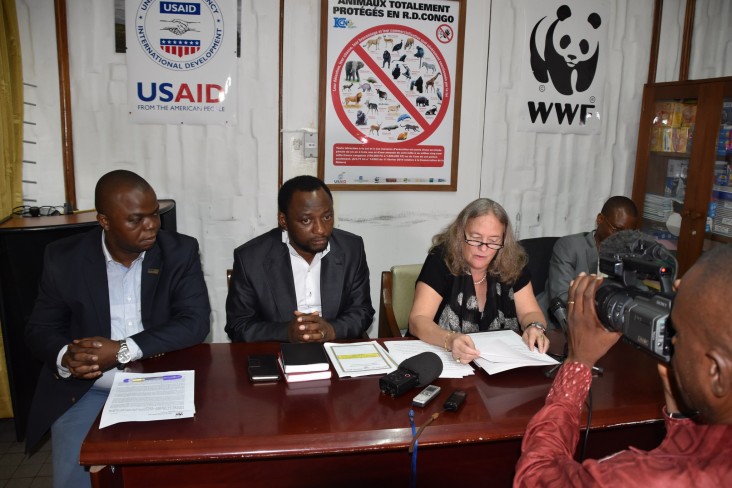
For Immediate Release
KINSHASA -- Congolese authorities have dealt a blow to the illegal ivory trade in the Democratic Republic of the Congo (DRC) with the assistance of organizations funded by the United States Agency for International Development (USAID).
On Feb. 4, Congolese authorities seized approximately 30kg of ivory tusks and ornaments in two separate operations in Kinshasa, confiscating processing equipment and arresting several traffickers. The USAID-funded international organization World Wildlife Fund (WWF), in partnership with national non-governmental organizations, helped authorities follow the wildlife trafficking network for some time before the arrests.
The seized ivory has been handed over to the Congolese Institute for Nature Conservation (ICCN) and the case has been transferred to the Public Prosecutor’s Office. Local NGOs continue to follow the case closely to ensure that those arrested are prosecuted, and that their network of accomplices is tracked down.
“USAID congratulates the Congolese government for apprehending these traffickers. This is an exciting example of how political will and international cooperation can make an impact on the illegal trade of wildlife, helping protect the DRC’s natural resources and interrupting a source of funding for armed groups,” Dr. Diana Putman, USAID/DRC Mission Director, said in a prepared statement.
Thousands of forest elephants are killed for ivory every year in the Congo Basin rainforest. The trafficking of wildlife products like ivory finances international terrorism and regional conflicts, threatening the security and stability of countries like the DRC. If poaching by criminal elements continues, the forest elephant could soon vanish from the DRC, harming the country’s biodiversity and impacting the ability of its forests to combat climate change.
The U.S. Government implements programs to conserve biodiversity and combat wildlife trafficking in six Central African countries. These programs are part of the Central Africa Regional Program for the Environment (CARPE), implemented by USAID and the U.S. Fish and Wildlife Service, and complemented by programs of other U.S. Government agencies.







Comment
Make a general inquiry or suggest an improvement.